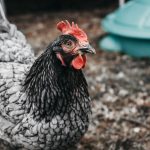Egg-eating behavior in hens is a complex issue with multiple potential causes. Common factors include nutritional deficiencies, uncomfortable nesting areas, stress, boredom, and accidental egg breakage. Overcrowding and inadequate care can also contribute to this behavior.
Understanding these underlying causes is essential for effective prevention and management. The consequences of hens consuming their own eggs are significant. This behavior can lead to reduced egg production, decreased egg quality, and lost revenue from egg sales.
If not addressed promptly, egg-eating can spread within the flock, creating a self-perpetuating cycle. To mitigate this issue, poultry keepers should focus on providing proper nutrition, creating comfortable nesting environments, and addressing sources of stress or boredom. Proactive management and attentive care are crucial in maintaining a healthy, productive flock and preventing the development of egg-eating behavior.
Table of Contents
- 1 Providing proper nutrition
- 2 Creating comfortable nesting areas
- 3 Collecting eggs frequently
- 4 Using fake eggs as deterrent
- 5 Addressing stress and boredom
- 6 Seeking professional advice
- 7 FAQs
- 7.1 What are some common reasons why chickens eat their own eggs?
- 7.2 How can I prevent my chickens from eating their eggs?
- 7.3 Are there any specific supplements or additives that can help prevent egg-eating behavior in chickens?
- 7.4 What are some signs that my chickens may be eating their eggs?
- 7.5 Is egg-eating behavior in chickens harmful to their health?
Key Takeaways
- Understanding the root cause: Identifying the reasons behind egg-eating behavior in hens is crucial for finding effective solutions.
- Providing proper nutrition: Ensuring that hens receive a balanced diet with adequate calcium and protein can help prevent egg-eating.
- Creating comfortable nesting areas: Designing cozy and secluded nesting boxes can encourage hens to lay eggs in a safe environment.
- Collecting eggs frequently: Regularly collecting eggs can reduce the likelihood of hens developing a habit of eating their own eggs.
- Using fake eggs as deterrent: Placing artificial eggs in nesting boxes can trick hens into pecking at them instead of real eggs, discouraging the behavior.
- Addressing stress and boredom: Enriching the hens’ environment with activities and minimizing stressors can help reduce the urge to eat eggs.
- Seeking professional advice: Consulting with a veterinarian or poultry expert can provide valuable insights and tailored recommendations for addressing egg-eating behavior in hens.
Providing proper nutrition
Understanding the Importance of Balanced Nutrition
One of the primary factors that can lead to hens eating their own eggs is a lack of proper nutrition. Hens require a balanced diet that includes essential nutrients such as calcium, protein, and vitamins to maintain healthy egg production and overall well-being. A deficiency in any of these nutrients can lead to abnormal egg production and potentially cause hens to seek out alternative sources of nutrition, including their own eggs.
Providing High-Quality Feed and Supplements
To address this issue, it is crucial to provide hens with a high-quality feed that is specifically formulated for laying hens. This feed should contain the necessary levels of calcium, protein, and other essential nutrients to support healthy egg production. In addition to providing a balanced feed, it is also important to offer supplemental sources of calcium, such as oyster shells or crushed eggshells.
The Role of Calcium in Egg Production
Calcium is essential for the formation of strong eggshells, and a deficiency in this nutrient can lead to thin or brittle shells that are more likely to break. By ensuring that hens have access to an adequate supply of calcium, you can help prevent egg breakage and reduce the likelihood of hens developing a taste for their own eggs. Providing proper nutrition is a crucial step in addressing the issue of hens eating their own eggs and promoting overall flock health.
Creating comfortable nesting areas

Another important factor to consider when addressing the issue of hens eating their own eggs is the quality of their nesting areas. Hens require comfortable and secure nesting areas in order to lay their eggs in a safe and stress-free environment. If nesting areas are overcrowded, dirty, or uncomfortable, hens may be more likely to engage in egg-eating behavior as a result.
To prevent this, it is important to provide clean and spacious nesting boxes that are lined with soft bedding material such as straw or wood shavings. These nesting boxes should be located in a quiet and secluded area of the coop to provide hens with a sense of privacy and security. In addition to providing comfortable nesting areas, it is also important to regularly clean and maintain these spaces to ensure that they remain inviting for the hens.
Dirty or soiled nesting boxes can lead to stress and discomfort for the hens, which may contribute to egg-eating behavior. By creating comfortable nesting areas that are clean, spacious, and secure, you can help prevent hens from developing a taste for their own eggs and promote healthy egg-laying behavior within the flock.
Collecting eggs frequently
One effective strategy for preventing hens from eating their own eggs is to collect eggs frequently throughout the day. Leaving eggs in the nesting boxes for extended periods of time can increase the likelihood of hens discovering and breaking them, which may lead to egg-eating behavior. By collecting eggs several times a day, you can reduce the opportunity for hens to come into contact with broken or damaged eggs and decrease the likelihood of them developing a taste for their contents.
Additionally, frequent egg collection can help ensure that eggs remain clean and free from contamination, which is essential for maintaining egg quality and safety. It is important to establish a routine for egg collection and make it a priority within your daily flock management practices. By consistently collecting eggs throughout the day, you can help prevent hens from engaging in egg-eating behavior and promote healthy egg production within the flock.
This simple yet effective strategy can make a significant difference in addressing the issue of hens eating their own eggs and maintaining a productive and healthy flock.
Using fake eggs as deterrent
Another effective method for preventing hens from eating their own eggs is to use fake eggs as a deterrent. Placing fake eggs in the nesting boxes can help discourage hens from pecking at or breaking real eggs, as they will be unable to distinguish between the two. Fake eggs can be made from materials such as plastic or ceramic and should closely resemble the appearance and feel of real eggs.
By strategically placing these fake eggs in the nesting boxes, you can create a visual deterrent that may dissuade hens from engaging in egg-eating behavior. In addition to using fake eggs as a deterrent, it is also important to regularly inspect the nesting boxes for any signs of damage or soiling. Broken or damaged eggs should be promptly removed from the nesting boxes to prevent hens from coming into contact with them.
By combining the use of fake eggs with regular monitoring and maintenance of the nesting areas, you can effectively discourage hens from eating their own eggs and promote healthy egg-laying behavior within the flock.
Addressing stress and boredom

Understanding the Causes of Egg-Eating Behavior
Hens experiencing stress or boredom may resort to pecking at or eating their own eggs as a way to alleviate their discomfort. This behavior can be a sign that the hens are not receiving adequate mental and physical stimulation.
Providing a Stimulating Environment
To address this issue, it’s crucial to provide hens with a stimulating environment that includes opportunities for exercise, social interaction, and mental stimulation. This can be achieved by providing ample space for the hens to roam and explore, as well as offering enrichment activities such as perches, dust baths, and toys.
Minimizing Stress within the Flock
In addition to providing a stimulating environment, it’s also important to minimize sources of stress within the flock. This may include reducing overcrowding, addressing conflicts between individual hens, and ensuring that the coop is kept clean and well-maintained.
By addressing stress and boredom within the flock, you can help prevent hens from engaging in egg-eating behavior and promote overall well-being within the flock.
Seeking professional advice
If despite your best efforts, your hens continue to eat their own eggs, it may be necessary to seek professional advice from a veterinarian or poultry expert. A professional can help assess the specific needs of your flock and provide tailored recommendations for addressing the issue of egg-eating behavior. They may also be able to identify any underlying health issues or environmental factors that may be contributing to this behavior and provide guidance on how to address them effectively.
In some cases, medication or dietary supplements may be recommended to address nutritional deficiencies or health issues that are contributing to egg-eating behavior. A professional can also provide guidance on best practices for managing flock dynamics and creating an optimal environment for healthy egg production. By seeking professional advice, you can gain valuable insights into how to effectively address the issue of hens eating their own eggs and promote overall flock health and well-being.
In conclusion, addressing the issue of hens eating their own eggs requires a comprehensive approach that includes understanding the root cause of this behavior, providing proper nutrition, creating comfortable nesting areas, collecting eggs frequently, using fake eggs as deterrents, addressing stress and boredom, and seeking professional advice when necessary. By taking proactive measures to address these factors, you can help prevent hens from engaging in egg-eating behavior and promote healthy egg production within your flock. With patience, diligence, and a commitment to providing optimal care for your hens, you can effectively address this issue and maintain a productive and thriving flock.
If you’re struggling with your chickens eating their own eggs, you may want to consider investing in a well-designed chicken coop. According to a recent article on Poultry Wizard, the size of the coop can have a significant impact on the behavior of your chickens. To learn more about how to properly size your coop, check out their article on how big a coop needs to be for a chicken.
FAQs
What are some common reasons why chickens eat their own eggs?
Chickens may eat their own eggs due to nutritional deficiencies, boredom, overcrowding, or the habit forming from accidentally breaking an egg and then consuming it.
How can I prevent my chickens from eating their eggs?
To prevent chickens from eating their eggs, you can provide a balanced diet, ensure they have enough space and entertainment, collect eggs frequently, and use proper nesting boxes with soft bedding to prevent eggs from breaking.
Are there any specific supplements or additives that can help prevent egg-eating behavior in chickens?
Yes, you can add oyster shell or calcium supplements to the chickens’ diet to ensure they are getting enough calcium, which may reduce the likelihood of them eating their eggs.
What are some signs that my chickens may be eating their eggs?
Signs that your chickens may be eating their eggs include finding broken eggshells in the nesting boxes, egg yolk on the chickens’ beaks or feathers, or a decrease in the number of eggs being laid.
Is egg-eating behavior in chickens harmful to their health?
Yes, egg-eating behavior in chickens can be harmful to their health as it can lead to nutritional deficiencies and can also be a difficult habit to break once it has been established.
Meet Walter, the feathered-friend fanatic of Florida! Nestled in the sunshine state, Walter struts through life with his feathered companions, clucking his way to happiness. With a coop that’s fancier than a five-star hotel, he’s the Don Juan of the chicken world. When he’s not teaching his hens to do the cha-cha, you’ll find him in a heated debate with his prized rooster, Sir Clucks-a-Lot. Walter’s poultry passion is no yolk; he’s the sunny-side-up guy you never knew you needed in your flock of friends!







